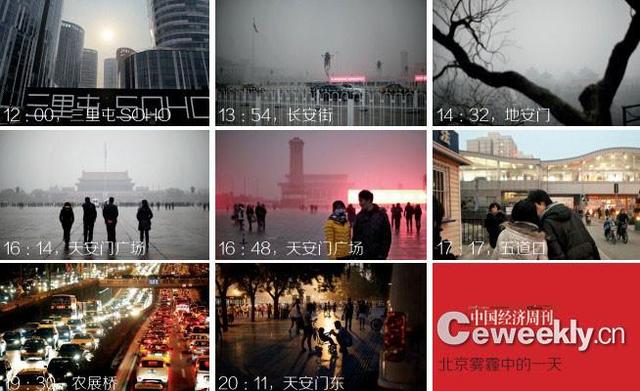中国通讯社四川讯(特约记者 李燕)在2024年成都世园会的繁花盛景中,眉山园如诗如画,静静地诉说着千年的文脉与生态之美。这是一座可以被阅读的自然生态人文馆,透过苏东坡的诗意视角,我们得以一窥眉州的生态画卷。
步入眉山园,仿佛穿越了瓦屋山的岁月之门,那人文之门的造型,引领着访客探寻历史的痕迹。东坡坊,以其“径转如修蟒,坡垂似伏鳌”的灵动,与“林断山明竹隐墙”的幽深,诠释了眉山园林的隐逸之美。竹叶形的东坡坊,宛如两片飘落在岷江上的竹叶,传统竹艺与现代建筑的融合,成就了一座别具一格的眉山人文地标。馆内,眉山的产业发展与人文生态交织,成为城市故事的讲述者,文化的驿站,以及人文的会客厅。
中国文物保护基金会历史文化专家、四川省政协委员、世园会眉山园总设计师刘卫兵先生说:“南宋大诗人陆游云游至眉州时,盛赞东坡故里:“孕奇蓄秀当此地,郁然千载诗书城”,千年诗书城是眉山园选址和设计紧扣的主题。我们欲以东坡视角探索眉州千年历史文脉,采用意象营造向世界展示“古之形胜地”散发出的时代诗意。
“不可居无竹”,东坡的这句诗,化作了无竹亭的意境,亭中竹影婆娑,诉说着文人与竹的不解之缘。竹,以其筛风弄月的风骨,象征着谦谦君子的品格,映照出中华民族对高尚品德的崇尚。
追寻着乡情的记忆,刘卫兵将那抹“川西林盘”的回忆徐徐展开:不可居无竹,是中国人特有的人文情怀。“莫听穿林打叶声,何妨吟啸且徐行。竹杖芒鞋轻胜马,谁怕?一蓑烟雨任平生。”苏轼道出了旷达洒脱的中国文人风骨。
无论“径转如修蟒,坡垂似伏鳌”的东坡全竹坊还是“林断山明竹隐墙”的东坡林,创意均源于东坡的文化意蕴。整个园林建筑虽没有传统造型的式样,却有西蜀园林的自然天趣和东坡“中隐”之美,并以当代简笔写意为之。精美的诗意栖居场景向世人呈现了世界上稀有的乡愁文化载体——川西竹林盘,构建“千载诗书城”的中华人文标杆。

咏梅园,以“冷烟湿雪梅花在,笑时犹带岭梅香”为引,梅花的坚韧与乐观,正如东坡在困境中的旷达与乐观。而橘颂园,借“菊暗荷枯一夜霜,新苞绿叶照林光”之句,展现了生命的坚韧与新生。
走入这东坡诗韵的生态画卷之中,点点呈现的都是总设计师刘卫兵的独特思考:首先选址世园会主会场的绛溪河畔,意象营造“吾家蜀江上,江水绿如蓝”为主题的东坡诗意栖居场景,表达方式不走寻常路。在结合瓦屋山造型,以红砂岩塑造的“眉州人文之门”自然巍峨不凡。因势营造的“一抔岷江水”,映衬着“文理自然,姿态横生”的眉山园。
园内共有东坡坊、东坡林、无竹亭、橘颂园、瑞莲池、东苑、西苑、梅园八大景观,阐述着东坡生态园林理念中的精髓:“出新意于法度之中,寄妙理于豪放之外”。

眉山园,是川西林盘生态文明的精妙诠释,竹编小品犹如点睛之笔,将青神竹编的传统艺术融入当代园林,连接古今,沟通世界。
这是一场诗意的邂逅,一次文化的沉浸,更是推动绿色低碳发展的生动实践;践行以竹代塑倡议,世园会眉山园营造全部采用眉山的本土植物和竹子,是真正实现了“让竹林成为四川美丽乡村的一道风景线!”。
眉山园,等待着每一位访客,去品味那份属于东坡的生态与人文韵致。
附英文文本:
Meishan Garden: An Ecological Scroll in the Poetic Charm of Dongpo, the Chinese Cultural Fragrance in the World Horticultural Expo
Among the splendid scenery of the 2024 Chengdu World Horticultural Expo, Meishan Garden stands as a picturesque and poetic representation, quietly narrating the millennium of cultural heritage and ecological beauty. This is a natural ecological and cultural museum that can be read, offering a glimpse into the ecological scroll of Meishan through the poetic perspective of Su Dongpo.
Stepping into Meishan Garden is like passing through the door of time at Wawushan, with the design of the cultural door leading visitors to explore the traces of history. Dongpo Fang, with its dynamic "path winding like a trained python, slope hanging like a reclining turtle," and the seclusion of "forests end, mountains clear, bamboo hides the wall," interprets the reclusive beauty of Meishan Garden. The bamboo-leaf-shaped Dongpo Fang, resembling two bamboo leaves falling on the Min River, is a fusion of traditional bamboo art and modern architecture, creating a unique cultural landmark of Meishan. Inside the museum, the industrial development and humanistic ecology of Meishan are interwoven, becoming the narrator of the city's story, a cultural station, and a living room for humanities.
Mr. Liu Weibing, an expert on historical culture from the China Cultural Heritage Protection Foundation, a member of the Sichuan Provincial Committee, and the chief designer of the Meishan Garden at the World Horticultural Expo, said: "The great poet of the Southern Song Dynasty, Lu You, praised the hometown of Dongpo when he traveled to Meishan: 'This place is pregnant with wonders and stores elegance, a city of poetry and books for a thousand years,' and the city of a thousand years of poetry and books is the theme closely followed by the site selection and design of Meishan Garden. We aim to explore the millennium of historical and cultural context of Meishan from Dongpo's perspective, using imagery to showcase the poetic charm of the 'ancient land of scenic beauty' to the world."
"One cannot live without bamboo," a line from Dongpo's poetry, is transformed into the artistic conception of the Wuzhu Pavilion, where the shadows of bamboo sway, telling the indissoluble bond between literati and bamboo. Bamboo, with its character of sifting the wind and playing with the moon, symbolizes the noble quality of a gentleman, reflecting the Chinese nation's admiration for noble virtues.
Following the memory of the hometown, Liu Weibing slowly unfolds the memory of "the western Sichuan forest," where "one cannot live without bamboo" is a unique cultural sentiment of the Chinese people. "Do not listen to the sound of the leaves being hit by the wind through the forest, why not chant and walk slowly? With a bamboo stick and straw sandals, lighter than a horse, who is afraid? A life of misty rain and drizzle." Su Shi expressed the open-minded and free-spirited character of Chinese literati.
Whether it is the Dongpo Bamboo Fang with "paths winding like a trained python, slopes hanging like a reclining turtle," or the Dongpo Forest with "forests end, mountains clear, bamboo hides the wall," the creativity stems from the cultural connotations of Dongpo. Although the entire garden architecture does not have a traditional style, it possesses the natural charm of Western Sichuan gardens and the beauty of Dongpo's "hidden in the middle." It is depicted with contemporary simple brushwork.
The exquisite poetic living scenes present to the world the rare cultural carrier of homesickness in the world - the western Sichuan bamboo forest, constructing the Chinese cultural benchmark of the "thousand-year city of poetry and books."
Yongmei Garden, with the phrase "cold smoke and wet snow, plum blossoms are present, and when smiling, they still carry the fragrance of the ridge plum," symbolizes the tenacity and optimism of plum blossoms, just like Dongpo's open-mindedness and optimism in adversity. The Jusheng Garden, borrowing the phrase "chrysanthemum dim, lotus withered, frost in one night, new buds and green leaves shine in the forest light," shows the tenacity and rebirth of life.
Walking into this ecological scroll of Dongpo's poetic charm, what is presented is the unique thinking of the chief designer Liu Weibing: firstly, the site is located on the Jiangxi River bank at the main venue of the World Horticultural Expo, creating an imagery of "My family is on the Shu River, and the river water is as green as blue" themed Dongpo poetic living scene, expressing in an unconventional way. Combining the shape of Wawushan, the "Meishan Cultural Door" is naturally majestic, shaped with red sandstone. The "handful of Min River water" created according to the terrain sets off the "natural texture, horizontal posture" of Meishan Garden.
There are a total of eight landscapes in the garden: Dongpo Fang, Dongpo Forest, Wuzhu Pavilion, Jusheng Garden, Ruilian Pond, East Garden, West Garden, and Mei Garden, elaborating on the essence of Dongpo's ecological garden concept: "Innovating within the rules, and placing wonderful principles beyond the unrestrained."
Meishan Garden is an exquisite interpretation of the ecological civilization of the western Sichuan forest, with bamboo weaving as the finishing touch, integrating the traditional art of Qing Shen bamboo weaving into contemporary gardens, connecting ancient and modern times, and communicating with the world.
This is a poetic encounter, an immersion in culture, and a vivid practice of promoting green and low-carbon development; practicing the initiative of using bamboo instead of plastic, the Meishan Garden at the World Horticultural Expo uses only local plants and bamboo from Meishan, truly realizing "letting the bamboo forest become a beautiful landscape of the beautiful countryside in Sichuan!"
Meishan Garden is waiting for every visitor to savor the ecological and cultural charm that belongs to Dongpo.
值班总编 夏都 责任编辑 严军








